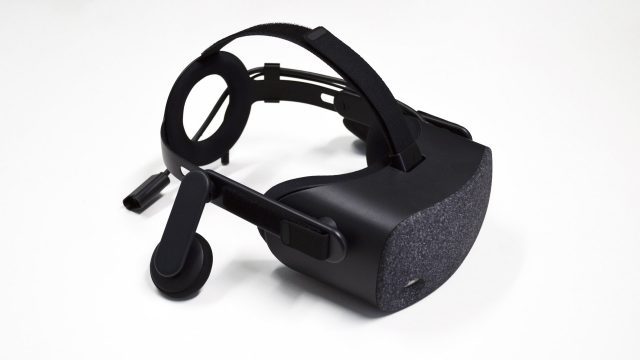After several weeks of delays from the May 6th launch date, HP said that their new Reverb VR headset should be restocked at their official website and major retailers in July, though it seems only a small number of were made available before the headset returned to being ‘sold out’. The bumpy launch continues to be plagued by reports of display issues.
Update (July 30th, 2019): HP had expected that new stock of the Pro and Consumer Edition Reverb headset would be available in July, though it appears that only a very limited number of headsets became available for sale. Users over at the WindowsVR subreddit spotted some stock at Best Buy earlier this month but said it was gone within 30 minutes. Presently the headset remains ‘sold out’ at HP.com, Amazon, and Best Buy, with no estimates for stock replenishment.
A spokesperson for HP tells Road to VR that the company is still working on the shortage, but doesn’t have a firm timeline at present. HP maintains that the near unavailability of the headset is due to “incredibly high demand,” but a surprising number of user reported display issues, and a purported HP insider, tell a different story.
Throughout July reports of display issues have continued, similar to those seen in June. A user on Reddit who claims to work for HP and be directly involved with Reverb said at the end of June that the company is actively testing returned headsets in an effort uncover the display issues.
At present we are capturing DOA units to get an handle on all the symptoms reported and we’re plowing through any stock we have here to see if we can repro what is being seen. (I’m testing units at my desk as we speak.)
Luckily, we found on[e] in the office that was having the dimmed LCD issue so we have a bit of a head start.
The fixes will be implemented as soon as we discover what is driving them. (The ‘cable issue’ is the easy one had has been fixed already.)
We hope to hear from HP when they have fully solved Reverb’s issues and the headset becomes readily available for purchase.
Update (June 12th, 2019): HP today told Road to VR that an initial supply of the Reverb headset was recently offered and quickly sold out at HP.com. The company says that more stock of both the Reverb Pro Edition and Reverb Consumer Edition is expected in July, and will be available from HP, Amazon, and Best Buy.
Some early adopters who have received retail Reverb headsets a reporting a range of display issues from dimming and flickering to mis-mapped pixels and blank screens. Users over at the Windows VR section of Reddit are pooling reports of Reverb display problems in an effort to determine the root cause. We didn’t encounter any such issues in our Reverb review.
We’ve reached out to HP for comment on the display issues, which some suspect were related to the headset’s delayed launch.
Update (May 26th, 2019): We’ve checked in with HP for an update on Reverb availability at several points since the May 6th launch date, but the company has declined to offer an update on when they expect the headset to be available, or what has caused the delay. We’re told they’ll be in touch when more information is available.
Original Article (May 14th, 2019): HP’s new Reverb headset boasts high resolution displays and a new design. Though it’s primarily aimed toward enterprise customers, HP is also planning to sell direct to consumers.
In fact the $600 HP Reverb Consumer Edition can already be seen listed on Amazon and Best Buy in the US, but both stores list ‘Out of Stock’. The $650 Reverb Professional Edition is also listed as ‘Out of Stock’ on HP’s store.
“We’re waiting on an update for expected availability to purchase and will let you know as we have a new date confirmed,” an HP spokesperson told Road to VR on May 6th; we’ve reached out in the interim but still haven’t received an update on availability of the headset.
In our review of the HP Reverb we found it to be a meaningful upgrade from the original HP headset, but the headset is held back from its true potential by an issue impacting display clarity and the same controllers flaws shared by other Windows VR headsets.


